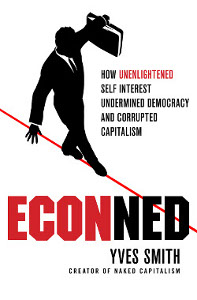Paul Jackson has been forced to eat a bit of crow. A judge in Alabama in a case called Horace v. LaSalle overturned a foreclosure action based on the failure of the trust to comply with the terms of the pooling & servicing agreement. As you see, the judge ruled that the borrower can assert rights under the Pooling and Servicing agreement as a third party beneficiary and that he was “surprised to the point of astonishment” that the trust had not complied with the terms of its PSA.
The ruling in favor of the borrower endorses an argument we have made since last year on this blog, that the pooling and servicing agreement stipulated a specific set of transfers be undertaken to convey the borrower note (the IOU) to the securitization trust within a specified time frame. New York trust law was chosen to govern the trusts precisely because it is unforgiving; any act not specifically stipulated by the governing documents is deemed to be a “void act” and has no legal force. So if a the parties to a securitization failed to convey a note to the trust within the stipulated timetable, retroactive fixes don’t work. In this case, the note had been endorsed by the originator, Encore, but not by the later parties in the securitization chain as required in the pooling and servicing agreement. See the order below:
Read the Rest...












